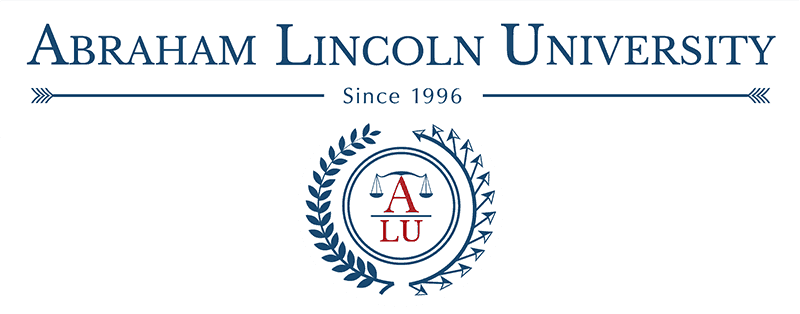The thought of your employer hiring someone to follow you around after work can be unsettling. Noticing a car parked outside your house and having it follow you as you go about your day can frighten you to the point of calling the police. Is it legal for your employer to monitor your activity in this way? In some situations, yes.
Your Employer Can Surveil You If Fraudulent Activity Is Suspected
A licensed private investigator can be hired by an employer in response to accidents or injuries you find yourself a part of and to secure evidence to be used in court. A licensed private investigator is allowed to follow or surveil others as long as they are engaging in lawful activities while doing so in order to obtain evidence of suspected illegal activity, fraudulent conduct, or other types of misconduct. [Civ.C. § 1708.7(b)(4), (6)] One common example is when an employer believes that a worker’s compensation claim for a work injury is dishonest in nature. In this hypothetical scenario, suppose the employee claims a serious back injury that his or her employer does not believe will truly inhibit his or her ability to work as before the injury was sustained. A private investigator is then hired to surveil the employee in question to find evidence to the contrary. The private investigator may, for example, obtain video evidence of the employee working out on Venice beach 3 times per week, lifting weights exceeding 80 pounds!
Monitoring Employees vs. Privacy Rights
While the above example is a clear case of lawful conduct, there are many other workplace scenarios where justice is not so clear cut in regard to what an employer can and can’t do. In cases where the boundaries that must be obeyed are not so obvious, privacy rights come into play and courts have to look at all of the relevant circumstances to see whether or not an employee’s privacy rights were violated significantly enough to give rise to an actionable claim.
In some circumstances, an employer’s conduct may result in a privacy violation based on a common law known as tort of intrusion, which has two elements. First, the employer must intentionally intrude into a place, conversation, or matter in which the plaintiff has a reasonable expectation of privacy. Second, the intrusion must occur in a manner offensive to a reasonable person. The right to privacy in the California constitution sets a standard similar to common law tort of intrusion. These cases are fact-specific; there is no bright line rule on what is “offensive.” The outcome is determined on a case by case basis.
What if an employer, (say, a nonprofit residential facility for neglected and abused children, including sexual abuse in this instance) suspected that one of its employees was repeatedly sneaking into an office at night and using a company computer to view pornographic websites? Would it be a privacy violation if the employer set up a hidden camera in their office to catch the culprit? What if the hidden camera was only turned on at night? These questions were raised In Hernandez v. Hillsides, Inc. 47 Cal.4th 272 (2009), where the employees who used that office space brought a lawsuit against their employer for setting up this hidden camera, claiming it was a violation of their privacy.
Ultimately, the California Supreme Court ruled that although “plaintiffs’ privacy interests in a shared office at work were far from absolute, they had a reasonable expectation under widely held social norms that their employer would not install video equipment capable of monitoring and recording their activities—personal and work related—behind closed doors without their knowledge or consent.” However, the intrusion was not viewed as so “highly offensive” as to constitute a privacy violation. The court conceded that “any actual surveillance was drastically limited in nature and scope, exempting plaintiffs from its reach. Defendants also were motivated by strong countervailing concerns” (in this case, the safety and well-being of the children the firm was serving).
The Hernandez case came to its conclusion in 2009. Over the past 10 years, however, technology has changed. The use of computers, various apps, and social media are more prevalent than they were before. More and more information about peoples’ personal lives are being shared on various social media platforms and stored on phones, tablets, and computers. Given this paradigm shift, should employees’ privacy expectations at work be scaled back? What about the fact that social media accounts have privacy settings, accounts are protected by passwords, and some Apps have encryption capabilities? Do these factors give employees a greater expectation of privacy? Even if an employer “intrudes” on an employee’s zone of privacy, will be it be viewed as “so offensive” as to give rise to a violation of privacy claim?
The Effect of Written Policies and Notice to Employees
Generally, if an employee agrees in writing that a work computer will only be used for work and that the employer can monitor its use with the employee’s consent, an employee will not have a reasonable expectation of privacy when it comes to the personal information stored on the computer. [TBG Ins. Services Corp. v. Sup.Ct. (Zieminski) (2002) 96 CA4th 443]. For example, in this scenario, if you are an employee who is frustrated at your boss and you decide to send an email to your co-worker calling your boss an idiot, the sentiment expressed could land you in hot water – if you’re an “at-will” employee, this type of email, although only intended to be seen by your trusted co-worker, could get you fired without any legal recourse.
Given the likelihood of technological advances, this area of law will continue to develop and change, but one thing seems fairly clear at the present time: an employer will probably be able to monitor what you do at work on their electronic devices. This is especially relevant when (1) an employer has a written policy notifying its employees that the use of their electronic devices are for work purposes only, (2) they have consented to being subject to monitoring, and (3) that they have no expectation of privacy regarding the transmission or storage of personal information on the company’s devices.
Under the circumstances above (detailed in written policy), even the attorney-client privilege might be waived in the event that an employee sends an email to his or her attorney on a company computer. Therefore, if you’re sitting at your desk at work and decide that today is the day to take legal action against your harassing supervisor and send a summary of your concerns via email to a law firm using your work email, more than one recipient of that email may be on the other end of the line; it’s possible that the unintended recipient (your employer) may legally have access to it.
Work–Sharing Tools
Work-sharing tools and software can increase productivity at work. However, they can also have the unintended effect of causing distraction and even decrease productivity if they are misused. SLACK (acronym for “Searchable Log of All Conversation and Knowledge”), for example, is a software that allows for file-sharing and messaging in the office. While teams can share files and efficiently collaborate on projects, users can also take advantage of the program by creating a private channel or messaging each other directly. Naturally, employers may have concern about these negative consequences of proving this work tool to its employees and may want to monitor the activity. Employers can gain access to all data on SLACK, including private messages. While the employer may have this capability, it still needs to comply with applicable laws. That’s where written policies and notices to employees become important.
All California employees should review their employer’s policies to see if there is a written policy stating that the use of their electronic devices are for work purposes only, whether or not they have consented to being subject to monitoring, and whether the policy puts them on notice that they have no expectation of privacy regarding the transmission or storage of personal information on the company’s devices. If these policies and notices are in place, then it’s safe to assume that when using your company’s tools and technology, you are far from alone.
Omid Nosrati is a West Los Angeles litigator whose practice has been focused on representing employees in labor and employment disputes for the last 15 years. Named a Super Lawyer for 2018, Mr. Nosrati has been honored by the American Society of Legal Advocates as one of the Top 100 Labor & Employment lawyers in California for 2016 and 2017.






